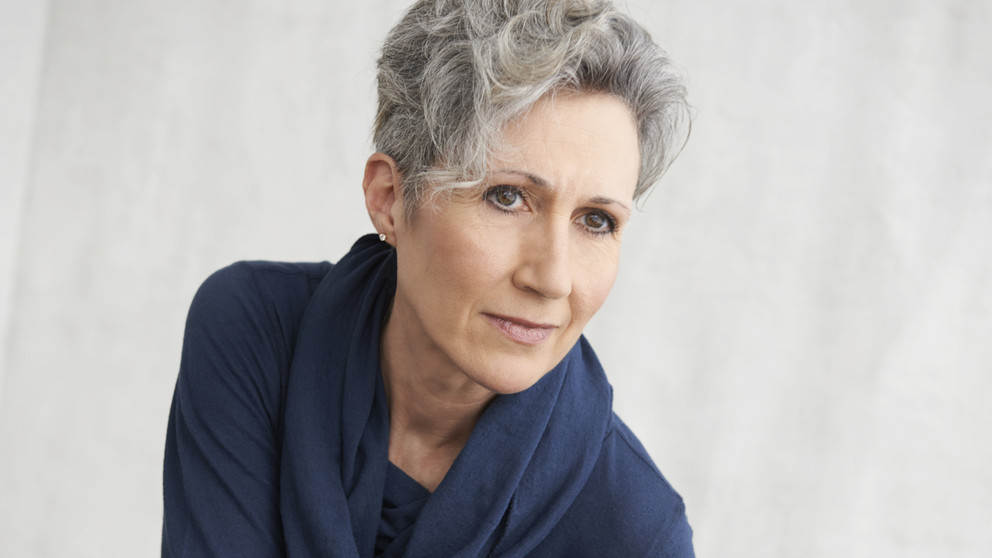
Susan Russell, associate professor in the School of Theatre at Penn State and co-founder/co-director of the Center for Pedagogy in Arts and Design in the College of Arts and Architecture, was performing in “Phantom of the Opera” at the Majestic Theatre and living in midtown Manhattan on September 11, 2001. A phone call from a concerned friend preceded the sounds of sirens and the smell of disaster that framed a scene of what seemed unbelievable, but her senses told her was real.
“I thought I was watching a movie. Then the next plane hit the twin towers, and I burst into tears. I didn’t understand, it didn’t make sense,” Russell said. “In that moment, the prism of light kept shifting to show more. The next thing I remember is seeing the smoke rising and a new smell in the air and it grew and grew. Everything I thought was real, changed.”
Cellphone service went down. Bridges were closed. But somehow Russell’s mom and her stage manager found a way to call, people found a way to connect, to assure each other they were not alone.
“I had my brother and friends in the city, we all came together in one apartment to hold on to each other, to what we had together in that moment. It created a bond that still exists today,” said Russell.
The lights on Broadway also went out that day. But then, a national chorus began to demand triumph — to rise above the darkness. One of the first steps toward it began when the lights went back up in 23 theaters, just two days after the attacks. Russell was on stage in one of them. She recalls director Hal Prince asking everyone, including actress Carol Burnett, to join him on stage before the show — insisting their sacred role as artists was to be the light in the world.
“9/11 for me was the end, if I did not choose to make it a beginning — I would not be doing my obligation as a human,” Russell said. “Our job as humans is to tell the story of our human encounter with the worst-case scenario, to look at that fear or loss and bring back a miracle; take back the joy in the human experience, be the mystic and share our story with others. Will it be a story of hope and possibilities, or one of fear and probabilities?”
Russell left New York a year later for Florida, where she earned her master of arts degree and her doctorate in theatre studies. She decided to leave performance and teach the art of human connection.
“The pendulum swings wide in the human experience. The attacks of 9/11, the COVID-19 pandemic — they each give us a polarity to discover hope, joy, and love for each other,” Russell said. “Peace is a process. In ‘A Christmas Carol,’ Charles Dickens wrote about the awakening to a miracle. If we do not learn that lesson from these moments, we have not learned anything.”
Russell will share more about 9/11 and how to rise during the human experience in “We Are…The Stories We Tell.” This course is offered through the Osher Lifelong Learning Institute (OLLI) at Penn State University Park both in-person and online via Zoom from 10:00 to 11:30 a.m. (ET) on Wednesday, September 8.
OLLI University Park will remember the passengers and crew who showed unity, courage, and defiance in the face of adversity in a second course, “America Attacked: Flight 93” presented live via Zoom from the Flight 93 National Memorial from 1:00 to 2:00 p.m. (ET) on Thursday, September 16. Gregory Zaborowski, education specialist for the National Park Service, will examine the events surrounding United Airlines Flight 93, the hijacked plane that went down in a field in Shanksville, Pennsylvania, on September 11, 2001, killing all 44 people on board.
A day trip to the Flight 93 National Memorial and Quecreek Mine Rescue Site will be offered through OLLI University Park on October 4. The tour will include the Flight 93 National Memorial Visitor Center, Wall of Names, and Tower of Voices. A picnic lunch will be provided at Green Gables Restaurant before visiting Quecreek Mine, the rescue site of nine miners who were trapped underground for four days in July 2002.
